U.S. Four-Ball: Defending champs knocked out by playoff survivors
5/24/2021 | by United States Golf Association
see also: View results for U.S. Four-Ball, Desert Mountain Golf Club - Cochise Course
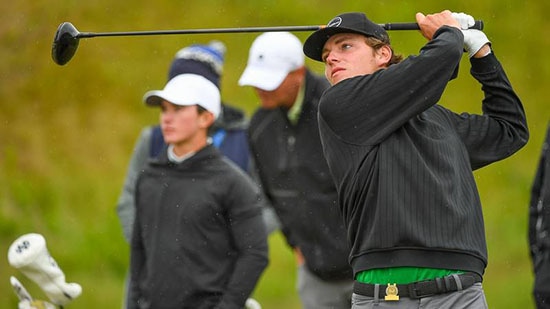
Notre Dame teammates Palmer Jackson & Davis Chatfield take out Scott Harvey & Todd Mitchell after surviving an 11-for-6 playoff
But Palmer Jackson and Davis Chatfield weren’t worried about résumés on a rainy Monday at Chambers Bay. After surviving the 11-for-6 playoff to qualify for match play, the University of Notre Dame teammates barely had enough time to think about their Round-of-32 foes in the 6th U.S. Amateur Four-Ball Championship. Besides, Chatfield, 21, of Attleboro, Mass., had already seen 2014 U.S. Mid-Amateur champion Harvey’s game up close in a USGA event. He defeated the decorated North Carolinian, 1 up, in the Round of 64 in last year’s U.S. Amateur at Bandon Dunes, the same place where Harvey and Mitchell claimed this crown in 2019.
Chatfield improved his record to 2-0, as he and Palmer, 20, of Murrysville, Pa., ended the title defense of the two 42-year-old mid-amateurs, 2 up.
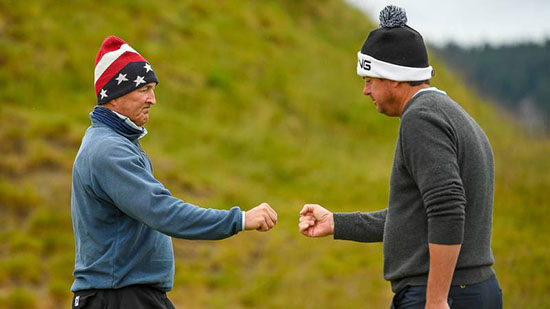
Todd White & Nathan Smith (Robert Beck/USGA)
The stroke-play medalists and top seeds, Kelly Chinn, 18, of Great Falls, Va., and David Ford, 18, of Peachtree Corners, Ga., barely survived a 19-hole thriller against Ryan Eckelkamp, 43, of Washington, Mo., and Tony Gumper, 40, of St. Charles, Mo., the last side to qualify from the playoff. Ford holed a 20-foot eagle putt on the par-5 first hole to secure the win after both Chinn and Ford missed birdie attempts inside 10 feet on the par-5 18th hole that would have ended the match.
A day after Mother Nature threw some wind at the competitors, she brought rain that stuck around until the early afternoon.
Even when Harvey and Mitchell built an early 2-up lead, the collegians never flinched. A 245-yard 3-wood on the par-3 15th hole to 3 feet by Jackson set up a tying birdie. Jackson displayed his power again on the 287-yard, par-4 16th hole, driving the green and two-putting for a winning 3 and the side’s first lead of the match. A conceded eagle 3 on the par-5 closing hole set up a Tuesday morning matchup against another side of USGA stalwarts. Besides playing on the 2013 USA Walker Cup Team together, Smith and White have combined to play in 74 USGA championships, with the latter claiming a record four U.S. Mid-Amateur titles, and White, a high school history teacher, reaching the semis of one U.S. Mid-Amateur (2012) and the quarters of two others.
“That’s going to be a good match,” said Jackson, a veteran of three U.S. Junior Amateurs and three U.S. Amateurs. “I’m from Pittsburgh, and I’ve played with Nathan a good bit, so we’re good friends. But it will be pure competition tomorrow.”
Chinn, who also was the medalist in the 2018 U.S. Junior Amateur at Baltusrol Golf Club in Springfield, N.J., and Ford admitted that they didn’t have the same kind of stuff that produced their 16-under-par 127 total in stroke play. But the two high school seniors – Chinn is headed to Duke in the fall and Ford to rival North Carolina – found a way to advance.
“You've really just got to forget about what you've done before and just focus on just staying in the present,” said Chinn. “Focus on each shot. I told David on 15 tee we've got four holes left, and all we've got to do is focus on each shot, and just by doing that I think we'd be in good shape.”
Wong and Capan combined for 10 birdies – just one was conceded – in their win over the oldest side in the field, Kory Bowman, 50, of Springfield, Mo., and Jason Schultz, 48, of Allen, Texas. In 32 holes at Chambers Bay, the two collegians have shot 20 under par.
“This course is unique,” said Capan. “It really brings out the creative side of both of our games. You can kind of work shots into a lot of these pins using the slopes to your advantage, but I think we've done a really good job of that between [stroke play] and this round.”
Next up for Capan-Wong is a Tuesday matchup against 2019 U.S. Junior Amateur champion Preston Summerhays, 18, of Scottsdale, Ariz., and Luke Potter, 17, of Encinitas, Calif. They defeated North Carolinians Trey Broome and Conner Sock, 3 and 2.
What's Next
Match play continues on Tuesday with the Round of 16 followed by the quarterfinals. The semifinals are scheduled for Wednesday morning with the 18-hole final in the afternoon. The final match is scheduled to begin at 1 p.m. PDT
2x Utah State Am champ Preston Summerhays & Luke Potter move on to round of 16 at the #USFourBall Championship with a 3 and 2 win today in rainy conditions at Chambers Bay GC. The duo of teenagers lost only two holes on the day. https://t.co/k8CBsvHRdd
— Randy Dodson (@RandyatFairways) May 24, 2021
Photo: Robert Beck/ @USGA pic.twitter.com/RKPz0JkCgZ
Notable
The 11-for-6 playoff on Monday morning for the final spots in the match-play draw lasted two holes on Nos. 10 and 11 of Chambers Bay. It was the largest number of sides for a playoff in championship history. A pair of local teens – Ethan Evans, of Mercer Island, Wash., and Max Herendeen, of Bellevue, Wash. – were eliminated on the first hole. Also failing to advance was the brother tandem of David and Kevin Schultz, whose mother, Anna, won the 2007 U.S. Senior Women’s Amateur.
Chambers Bay was awarded the 2022 U.S. Women’s Amateur Championship on Monday. It will be the fourth USGA championship for the public facility that is owned by Pierce County and managed by KemperSports.
Chambers Bay architect Robert Trent Jones Jr. and his chief design associate Bruce Charlton were on hand for the announcement. The course opened in 2007 and underwent an extensive greens renovation in 2018 when all the putting surfaces were converted from fine fescue to Poa annua, a move that has been lauded by competitors this week.
Maxwell Ford wasn’t as fortunate as his twin brother, David. The University of Georgia signee and his partner, Bruce Murphy, who plans to enroll at Tennessee in 2022, lost, 1 down, to 2019 runners-up and ex-East Carolina teammates Logan Shuping and Blake Taylor.
The only side with Pacific Northwest ties to qualify for match, Reid Hatley, of Hayden Lake, Idaho, and Jake Koppenberg, of Bellingham, Wash., advanced with a 3-and-2 victory over Carter Loflin and Wells Williams.
🙌 On to the next round!
— Washington Golf (WA Golf) (@PlayWAGolf) May 25, 2021
Reid Hatley and Jacob Koppenberg (@MrJakeK) won today's match 3&2 to advance to the Round of 16 at the #USFourBall at @ChambersBayGolf. https://t.co/MynkShCbWK
Joe Greiner, the caddie for two-time PGA Tour winner Max Homa, and his partner, Johnny MacArthur were eliminated by playoff survivors Cole Berman and Michael Davis.
Stewart Hagestad made a caddie switch for match play when his longtime bag man, John Doherty, fell ill during stroke play. The 2016 U.S. Mid-Amateur champion and three-time USA Walker Cupper, who is partnering with Derek Busby, procured 13-year Chambers Bay caddie Brandon Solomonson. Hagestad and Busby survived the playoff, but could not get out of the Round of 32, falling to No. 3 seeds and University of Nevada teammates Brendan MacDougall and Sam Meek in 19 holes.
Kiko Francisco Coelho and Leonardo Herrera III survived the longest match of the day, a 21-hole affair against Chad Branton and Kyle Hosick.
At 53, Todd White is now the oldest remaining player. He and partner Nathan Smith are now the oldest side with a combined age of 95 after Korey Bowman and Jason Schultz (98 years) were eliminated in the Round of 32.
Quotable
“That was not my best golf out there. Kelly had some shots that I bet he feels like he could hit better, and I know he can hit those shots, and I know I can hit the shots. I'm glad that we got through and we were able to learn from the first round.” – medalist David Ford on surviving the Round of 32 with partner Kelly Chinn
“We teed off in a rainstorm, it's freezing, and yeah, we got a couple up early. They're a dynamic team, and no lead is safe out here. We were just trying to hang on.” – Nathan Smith after getting through a tough weather day
“That's the beauty of this place is that you never really look at what you're doing in relation to par because every hole is this unique challenge, and you just try to stay in the moment the best you can and hopefully a few putts fall along the way.” – Todd White on playing Chambers Bay
“We're all about the views. Both golf courses are 18 holes, but … we love this golf course. The first time we got here, we talked about it a lot. Every hole is spectacular. We thoroughly enjoy it no matter how we play.” – 2017 champion Shuai Ming Wong on the success they’re having at Chambers Bay
David Shefter is a senior staff writer for the USGA. Email him at dshefter@usga.org.
About the U.S. Four-Ball

The U.S. Amateur Four-Ball championship was played for the first time in 2015 at The Olympic Club in San Francisco, Calif. The event has no age restriction, however, it is only open to individual players with a Handicap Index of 2.4 or lower. It is o...
Most Popular Articles
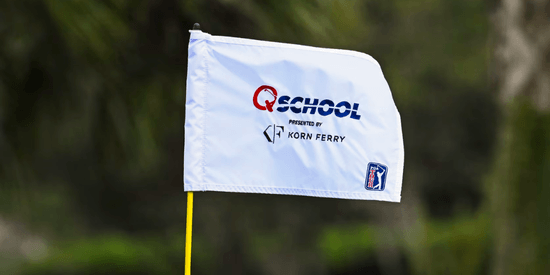
2025 PGA TOUR Q-School Guide: Sites, Scores, and Who Advanced
Dec 5, 2025Second Stage is complete and Final Stage awaits at Sawgrass — follow every Q-School leaderboard and the players still chasing
2025 LPGA TOUR Q-Series: Final Qualifying Stage FINAL SCORING
Dec 8, 2025Helen Briem earns medalist honors, 31 players headed to the LPGA next year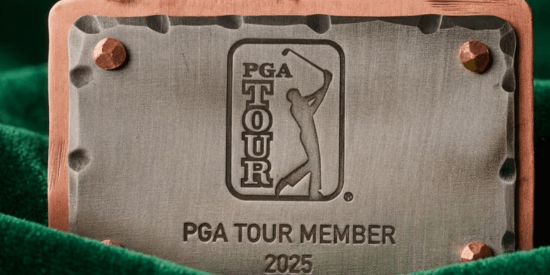
2025 PGA TOUR Q-School Final Stage: Ewart Leads Five New TOUR Card Winners
Dec 14, 2025A.J. Ewart topped Final Stage at TPC Sawgrass, leading five players who secured PGA TOUR membership for 2026.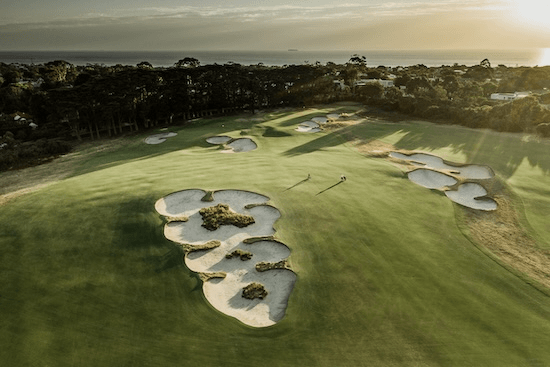
Australian Open at Royal Melbourne: Preview, amateur bios, and how to watch
Nov 30, 2025Rory McIlroy headlines one of the championship's top fields in years - at least four amateurs will have their chance at glory
Luke Ringkamp Cruises to Rolex Tournament of Champions Title at TPC San Antonio
Nov 26, 2025One week after committing to Pepperdine, Luke Ringkamp won the Rolex Tournament of Champions by nine shots.
